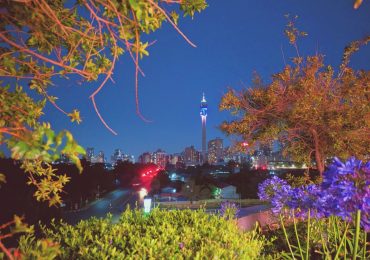The shortlists for the 2022 Sunday Times Literary Awards have been revealed.
The two awards—the Non-fiction Award and the Fiction Prize—celebrate ‘the best of South African non-fiction and fiction’ from the previous year. Each winner receives R100,000, marking the award as one of the richest literary prizes on the continent.
This year marks the 32nd anniversary of the non-fiction award, and the 21st year of the fiction prize.
2022 Non-fiction Award shortlist
- Bloody Sunday: The Nun, the Defiance Campaign and South Africa’s Secret Massacre by Mignonne Breier (Tafelberg)
- Scatterling of Africa: My Early Years by Johnny Clegg (Pan Macmillan)
- The Poisoners: On South Africa’s Toxic Past by Imraan Coovadia (Umuzi)
- Land Matters: South Africa’s Failed Land Reforms and the Road Ahead by Tembeka Ngcukaitobi (Penguin Non-fiction)
- History of South Africa: From 1902 to the Present by Thula Simpson (Penguin Non-fiction)
For the Non-fiction Award, the criteria is: ‘The winner should demonstrate the illumination of truthfulness, especially those forms of it that are new, delicate, unfashionable and fly in the face of power; compassion; elegance of writing; and intellectual and moral integrity.’ The judges for the award this year are Griffin Shea (chair), Nomavenda Mathiane and Bongani Ngqulunga.
Shea says:
Current events have become so overwhelming, we created the word doomscrolling to describe the despair the news of the day leaves us to wallow in. This year’s shortlist takes a few steps back to put things in perspective. Three of the books give a broad sweep of history, told with fresh perspectives that give insight into how we got to where we are today.
Thula Simpson’s History of South Africa takes in the entire 20th century, and most of the 21st. Tembeka Ngcukaitobi covers more emotive history in Land Matters. He excavates the past in a way that lays the groundwork for thinking about the future. In The Poisoners, Imraan Coovadia takes stories we may have heard before, but layers them with context and nuance. He finds toxic distrust within society a deeper cause of deadly potions. Bloody Sunday reveals a horrific episode largely forgotten from the history books. Instead of merely recounting a massacre, Mignonne Breier finds an intimate narrative infused with the conviction that one person can make a difference. And in Scatterling of Africa, Johnny Clegg reminds us with humour and joy of the music that defined the turbulent years leading to democracy. There is a vibrant, if complicated, cross-cultural friendship, which produced music that gave hope for the possibilities that were to come.
The Fiction Prize judges are Ekow Duker (chair), Kevin Ritchie and Nomboniso Gasa. The criteria stipulate that the winning novel should be one of ‘rare imagination and style … a tale so compelling as to become an enduring landmark of contemporary fiction’.
2022 Fiction Prize shortlist
- The Promise by Damon Galgut (Umuzi)
- An Island by Karen Jennings (Karavan Press)
- Children of Sugarcane by Joanne Joseph (Jonathan Ball Publishers)
- Junx by Tshidiso Moletsane (Umuzi)
- All Gomorrahs Are The Same by Thenjiwe Mswane (Blackbird Books)
Duker says:
I’m sure we can all remember our school days when the teacher would pose a question to the class. Some pupils would immediately strain to answer. Others might look at each other in puzzlement, the answer tantalisingly out of reach. This year’s judging of the Fiction Prize was a little like that. Some novels by their magisterial telling of an important story, screamed at the judges to, ‘Pick me! Pick me!’ Others were more restrained, quietly confident in their ability to narrate a memorable tale.
Each of the five books that made this year’s shortlist met the criteria but in remarkably different ways. An Island by Karen Jennings is a masterful depiction of a fragile life lived in near-solitude. With its cast of indentured labourers and colonial administrators, Joanne Joseph’s Children of Sugarcane took us on a meticulously detailed journey from India to the cruel fields of Natal, and back again.
All Gomorrahs Are the Same by Thenjiwe Mswane gently lifts the veil of familiarity that shrouds the existence of three women, allowing us a powerfully intimate view into their inner lives. Damon Galgut’s The Promise, winner of the 2021 Booker Prize, is a compelling study of a once privileged family in terminal decline. Finally, and without any warning to buckle up, Junx by Tshidiso Moletsane flung us headlong into the exhilaration of inner-city Joburg.
~~~
Last year’s Sunday Times Literary Award winners were Marguerite Poland, who won the Fiction Award for her novel A Sin of Omission, and Andrew Harding, who won the Non-fiction Prize for his book These Are Not Gentle People.





